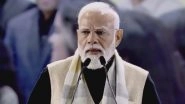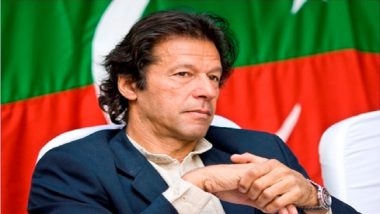Islamabad, Aug 6: Imran Khan, set to open a new innings as Pakistan's next prime minister after his party unanimously named the cricketer-turned-politician to the top post, today vowed to live up to the people's mandate and steer the country out of the current financial crisis. The Pakistan Tehreek-e-Insaf's parliamentary committee today officially nominated Khan as the party's prime ministerial candidate after it emerged as the single largest in the National Assembly in the July 25 general elections. Khan, 65, was nominated by PTI's parliamentary committee which met at a hotel here.
Shah Mahmood Qureshi, the party's senior vice president, moved a resolution in favour of Khan's nomination to become the party's parliamentary leader.
The motion was unanimously approved in the meeting attended by all newly-elected members of the National Assembly and the Senate. In his acceptance speech, the PTI chief recalled the party's history, his own struggles and achievements, including Pakistan's 1992 World Cup victory, and laid out future plans.
"My focus was not to become an MNA or a prime minister," Imran said during his address. "The issues over which the nation voted us into power need to be addressed on priority," he said. "The country is in an economic crisis and we need to steer it out of it." "We will approach overseas Pakistanis for repayment of debts," he added.
With Pakistan facing a serious financial crisis, Asad Umar, the PTI leader touted to be the country's next finance minister, has estimated that the economy may need more than USD 12 billion to overcome the deficit, with a decision on where to source the funds to be made within six weeks. Imran said the nation had defeated political status-quo by rejecting two-party system prevailing since the 1970s.
"Rarely can a third political party makes space for itself," he said.
"After 1970, this is the first time that the masses have defeated the political elite. This happens very rarely that in a two-party system a third once gets a chance," he said. He said the people no longer believed in conventional politics. "We will be held accountable by our voters if we stick to conventional governance structure," he said. "Our struggle will create the future of Pakistan. The first phase of my 22-year-old struggle is completed," apparently referring to the setting up of the party by him in 1996.
"We are set for the second stage," Khan said as he thanked the members for showing confidence in his leadership. "Today, I have been given the biggest of responsibilities," the PM-in-waiting said. Khan warned his fellow party leaders that they must not govern the traditional way. "There are challenges aplenty for the PTI government," he said. "The people do not expect us to govern the traditional way; we are viewed as different. If we do traditional politics then we would also fall prey to the public wrath."
Earlier in the day, Khan left his Banigala residence for the first time after his party's victory in last week's elections. Despite Khan's explicit instructions and refusal to travel with a large protocol, a number of cars and heavy security tagged along with him. "I was given official protocol [while coming here today] — the country cannot be run like this," he said.
If we cannot bring change then we will suffer the same fate as MMA and ANP, he warned, referring to the poor electoral show of the Muttahida Majlis-e-Amal and Awami National Party. Imran also urged party leaders to "save the money of the nation so it can spent on public welfare." He vowed, "I will take decisions based on merit and for the betterment of the people."
While the exact date of the swearing-in of Pakistan's new prime minister has not been announced, reports say it could take place on August 14, the Independence Day of the country. Pakistan's National Assembly comprises a total of 342 members, of which 272 are directly elected. A party can only form the government if it manages to clinch 172 seats in total. PTI spokesman Fawad Chaudhry claimed that allies and reserved seats will take the party tally to 174 seats in the National Assembly.













 Quickly
Quickly


